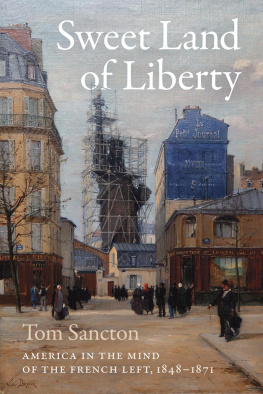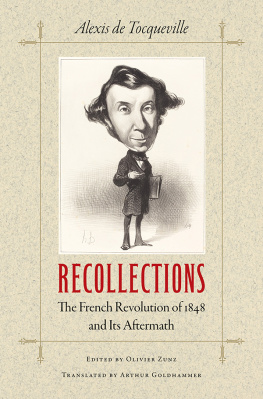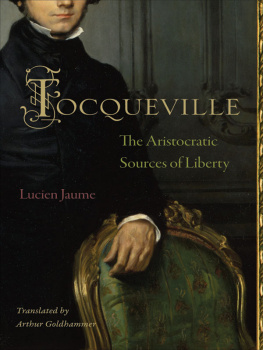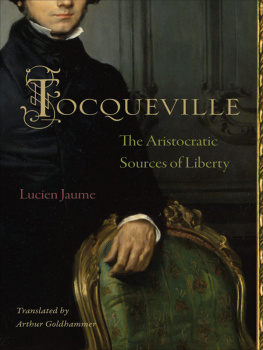Tom Sancton - Sweet Land of Liberty: America in the Mind of the French Left, 1848–1871
Here you can read online Tom Sancton - Sweet Land of Liberty: America in the Mind of the French Left, 1848–1871 full text of the book (entire story) in english for free. Download pdf and epub, get meaning, cover and reviews about this ebook. year: 2021, publisher: LSU Press, genre: Politics. Description of the work, (preface) as well as reviews are available. Best literature library LitArk.com created for fans of good reading and offers a wide selection of genres:
Romance novel
Science fiction
Adventure
Detective
Science
History
Home and family
Prose
Art
Politics
Computer
Non-fiction
Religion
Business
Children
Humor
Choose a favorite category and find really read worthwhile books. Enjoy immersion in the world of imagination, feel the emotions of the characters or learn something new for yourself, make an fascinating discovery.
- Book:Sweet Land of Liberty: America in the Mind of the French Left, 1848–1871
- Author:
- Publisher:LSU Press
- Genre:
- Year:2021
- Rating:3 / 5
- Favourites:Add to favourites
- Your mark:
Sweet Land of Liberty: America in the Mind of the French Left, 1848–1871: summary, description and annotation
We offer to read an annotation, description, summary or preface (depends on what the author of the book "Sweet Land of Liberty: America in the Mind of the French Left, 1848–1871" wrote himself). If you haven't found the necessary information about the book — write in the comments, we will try to find it.
In Sweet Land of Liberty, Tom Sancton examines how the French left perceived and used the image of the United States against the backdrop of major historical developments in both countries between the Revolution of 1848 and the Paris Commune of 1871. Along the way, he weaves in the voices of scores of French observersincluding those of everyday French citizens as well as those of prominent thinkers and politicians such as Alexis de Tocqueville, Victor Hugo, and Georges Clemenceauas they looked to the democratic ideals of their American counterparts in the face of rising authoritarianism on the European continent.
Louis Napoleons bloody coup in December 1851 disbanded Frances Second Republic and ushered in an era of increased political oppression, effectively forging together a disparate group of dissidents who embraced the tradition of the French Revolution and advocated for popular government. As they pursued their opposition to the Bonapartist regime, the French left looked to the American example as both a democratic model and a source of ideological support in favor of political liberty. During the 1850s, however, the left grew increasingly wary of the United States, as slavery, rapacious expansionism, and sectional frictions tarnished its image and diminished its usefulness.
The Civil War, Sancton argues, marked a critical turning point. While Napoleon III considered joint Anglo-French recognition of the Confederacy and launched an ill-fated invasion of Mexico, his opponents on the left feared the collapse of the great American experiment in democracy and popular government. The Emancipation Proclamation, the Union victory, and Lincolns assassination ignited powerful pro-American sentiment among the French left that galvanized their opposition to the imperial regime. After the fall of the Second Empire and the founding of the conservative Third Republic in 1870, the relevance of the American example waned. Moderate republicans no longer needed the American model, while the more progressive left became increasingly radicalized following the bloody repression of the Commune in 1871. Sancton argues that the corruption and excesses of Gilded Age America established the groundwork for the anti-American fervor that came to characterize the French left throughout much of the twentieth century.
Sweet Land of Liberty counters the long-held assumption that French workers, despite the distress caused by a severe cotton famine in the South, steadfastly supported the North during the Civil War out of a sense of solidarity with American slaves and lofty ideas of liberty. On the contrary, many workers backed the South, hoped for an end to fighting, and urged French government intervention. More broadly, Sanctons analysis shows that the American example, though useful to the left, proved ill-adapted to French republican traditions rooted in the Great Revolution of 1789. For all the ritual evocations of Lafayette and the traditional Franco-American friendship, the two republics evolved in disparate ways as each endured social turmoil and political upheaval during the second half of the nineteenth century.
Tom Sancton: author's other books
Who wrote Sweet Land of Liberty: America in the Mind of the French Left, 1848–1871? Find out the surname, the name of the author of the book and a list of all author's works by series.














